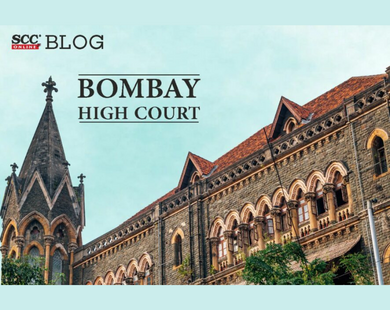Bombay High Court: In a petition filed by Chanda Kochhar (wife) and Deepak Kochhar (husband) seeking quashing of the FIR registered under Sections 120-B and 420 of Penal Code, 1860 (`IPC') and Sections 7, 13(2) r/w 13(1)(d) of the Prevention of Corruption Act (`PC Act'), further seeking quashing of their illegal arrest being violative of Sections 41 and 41-A of Criminal Procedure Code (CrPC) as well as quashing of the remand orders dated 24-12-2022 and 26-12-2022 passed by the Special Central Bureau of Investigation (CBI ) Judge, Mumbai, and ultimately seeking their release from custody, a Division Bench of Revati Mohite Dere and Prithviraj K. Chavan, JJ., granted interim bail to the petitioners-Chanda Kochhar and Deepak Kochhar on cash bail in the sum of Rs. 1,00,000/- each, for a period of two weeks on finding non-compliance of the mandate of Section 41(1)(b)(ii), Section 41-A and Section 60-A of Criminal Procedure Code (CrPC) by the authorities.
The issue under consideration is limited to dealing with whether the arrest of the petitioners was illegal i.e. contrary to the constitutional mandate and statutory provisions and consequently, whether the petitioners are entitled to be released on interim bail or not.
Placing reliance on Mohd. Zubair v. State, 2022 SCC OnLine SC 897, the Court noted that arrest is not mandatory and the notice issued under Section 41-A CrPC is to ensure that the persons upon whom notice is served, is required to attend for `answering certain queries' relating to the case and an arrest can follow only when there is a reason to believe or suspect that the said person has committed an offence, and there is a necessity for an arrest as stipulated in Section 41(1)(b)(ii) from (a) to (e) CrPC.
The Court further noted that it is incumbent upon the police not only to record reasons for arrest in writing, but, even in cases, where the police choose not to arrest. It is also incumbent on courts to satisfy themselves that there is due compliance of Section 41 and 41-A, failing which, the same will ensure the benefit of the person suspected of the offense, entitling the person to be released on bail.
The Court remarked that arrest may be authorised only if the concerned officer has `reason to believe' and there is `satisfaction qua an arrest' that the person has committed an offence. There must be a direct nexus or live link between the material before the officer and the formation of his belief. Thus, there must be a rational connection between the two and ‘reason to belief' must be based on credible material and no decision to arrest can be recorded on fancy or whimsical grounds.
The Court recorded that the arrest memo mentioned that the accused has been not cooperating and disclosing true and full facts of the Case. The mandate of Section 41 CrPC makes it clear that for a cognizable offence, an arrest is not mandatory, and the onus lies with the officer who seeks to arrest. Thus, on perusal of the arrest memo and the ground of arrest mentioned in it makes it amply clear that the ground mentioned is unacceptable and is contrary to the reason(s)/ ground(s) on which a person can be arrested i.e. contrary to the mandate of Section 41(1)(b)(ii) (a) to (e) CrPC.
The Court concluded that in the present case, the reasons recorded by the Officer in the ground of arrest, does not satisfy the tests laid down in Section 41(1)(b)(ii) (a) to (e) of CrPC and does not disclose as to whether the arrest was necessary for one or more purpose(s) as envisaged in the said provision.
Thus, the Court held that non-compliance of the mandate of Section 41(1)(b)(ii), Section 41-A and Section 60-A of CrPC will ensure the benefit of the petitioners, warranting their release on bail.
[Chanda Deepak Kochhar v. Central Bureau of Investigation, 2023 SCC OnLine Bom 72, decided on 09-01-2023]
Advocates who appeared in this case :
Mr. Amit Desai, Sr. Advocate a/w Mr. Gopalkrishna Shenoy, Mr. Kushal Mor, Mr. Rohan Dakshini, Ms. Pooja Kothari, Ms. Deepa Shetty, Mr. Kyrus Modi, Mr. Pranav Narsaria and Mr. Tejas Popat i/b Rashmikant and Partners for the Petitioners in WP/ST/22494/2022;
Mr. Vikram Choudhary, Sr. Advocate a/w Mr. Kushal Mor, Mr. Rohan Dakshini, Ms. Pooja Kothari, Ms. Deepa Shetty, Mr. Kyrus Modi, Mr. Pranav Narsaria and Mr. Tejas Popat i/b Rashmikant and Partners for the Petitioners in WP/ST/22495/2022;
Mr. Raja Thakare, Spl. P.P. a/w Mr. Kuldeep S. Patil, Ms. Saili Dhuru, Mr. Akash Kavade, Mr. Siddharth Jagushte for the Respondent No.1- CBI;
Mr. J. P. Yagnik, A.P.P for the Respondent No. 2-State.
*Arunima Bose, Editorial Assistant has reported this brief.






